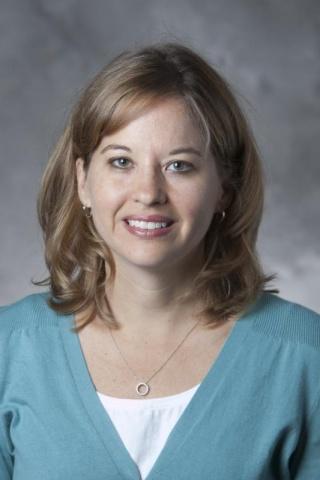
Jody Feld, DPT, PhD, had her first exposure to physical therapy after a childhood athletic injury. She decided to pursue physical therapy herself, ultimately specializing in neurologic rehabilitation. Now she’s at Duke, where she’s mentoring students in our DPT program and conducting research on reducing disability, falls and sedentary behavior among adults with neurologic conditions. For this week’s Spotlight interview, Feld talks to us about her work in both of these fields, the gains neurorehabilitation has made over the past generation, and how targeted neurorehabiliation efforts are likely to help patients in the near future.
What are your current responsibilities within the Neurology Department and the Duke Doctor of Physical Therapy (DPT) Program? What does a typical day look like for you?
My effort is primarily focused on research and scholarly efforts directed at reducing mobility disability, falls, and chronic sedentary behavior in adults living in the community with neurological conditions. I also mentor and teach graduate students in the DPT Program in the areas of gait, motor learning, motor control and neurologic rehabilitation. Other areas of interest and service are a yearly IPE Adapted Sports Experience and a Service-Learning Experience, Durham Neuro Camp.
How and when did you first get interested in physical therapy? How did you decide to specialize in neurologic rehabilitation?
My first exposure to physical therapy was as a young athlete who needed rehabilitation post injury. My interest in neurologic rehabilitation developed when I was in graduate school where I had the opportunity to learn from professors and clinicians about neurologic rehabilitation. My professional practice has since focused on neurologic rehabilitation, and I have had the pleasure of working with multiple teams of talented clinicians, researchers, and inspiring patients and their families who have shaped my love for working with this population.
How has the field of neurorehabilitation changed the most since you entered the field?
Over the last 20 years, neurologic rehabilitation has changed dramatically. Positively, the acute management of stroke (e.g., tPA, mechanical thrombectomy) has resulted in a greater number of survivors with diminished disability. Rehabilitation has shifted from a lower-intensity hands on facilitation-focused approach to a higher intensity, multi-dimensional and technology driven approach. Lastly and negatively in my mind has been a significant reduction in the length of stay acute inpatient and outpatient rehabilitation which significantly limits potential for long-term health and quality of life.
What changes or developments coming in the next 10 years are you most excited about?
I am most hopeful for the continued development and integration of personalized and timely neurologic rehabilitation services across the continuum of care. This will need to include validated prediction models including identification of potential responders and non-responders to specific treatments, and multidimensional and combined therapeutic interventions.
What’s one thing you wished more patients and their loved ones knew about rehabilitation for strokes or other neurological conditions?
I always try to educate individuals that need neurologic rehabilitation and their families/caregivers to ask questions, to expect and demand timely and evidence-based therapy, to be their own advocate and to seek out providers who will advocate for them. In addition, neurologic rehabilitation is more like a marathon than a sprint, and patience, determination, and support are very important.
What other passions or hobbies do you have outside of the Department?
My spouse and I enjoy time outdoors with our pups, having dinner with family and friends, taking trips to mountains, and lately watching HGTV and YouTube videos to help us in renovating our home. My “happy place” is on a lake in Maine kayaking at dawn and dusk when the water is still and all you can hear are the loons talking.

Feld enjoys the outdoors and comfort of nature when she's not at Duke.